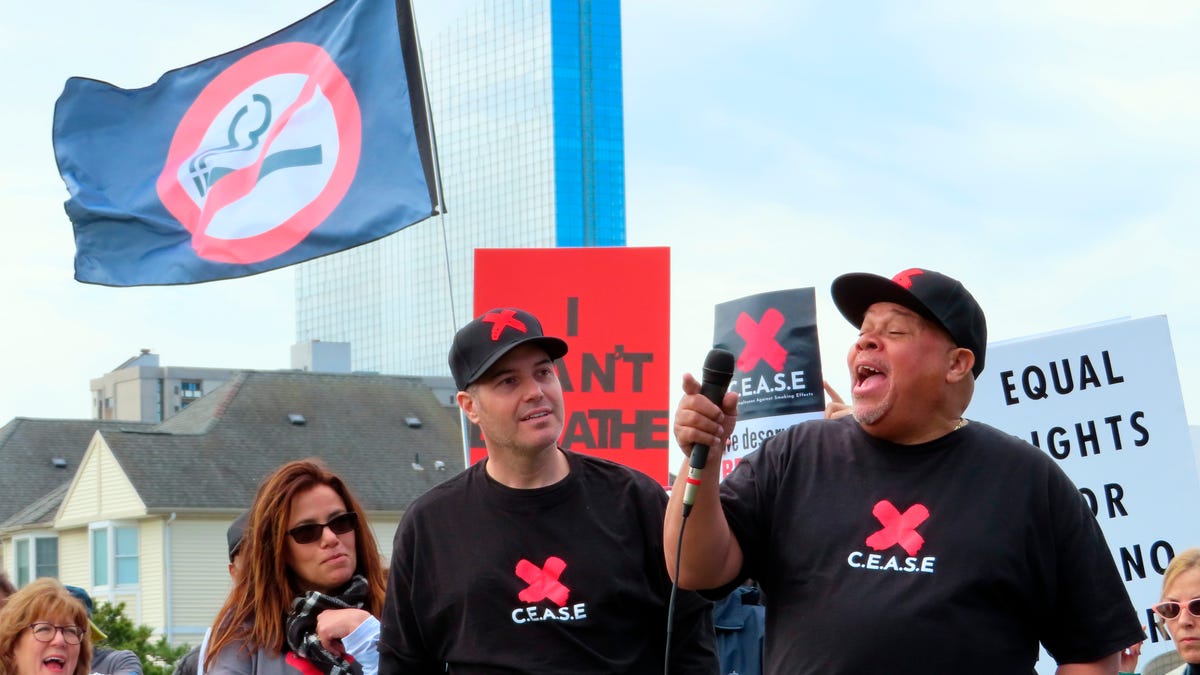New Jersey
NJ’s casino smoking ban bill on hold, but still possible during lame duck session

2-minute read
Casino workers will have to wait at least a few more weeks to find out the fate of a bill that would ban smoking on Atlantic City casino floors.
The bill has had enough co-sponsors to pass the Legislature since the beginning of the year but has only appeared as a discussion-only item at committee hearings in both chambers.
On Thursday in front of a standing room only crowd, it was tabled because it didn’t have enough votes to clear the committee.
State Sen. Joseph Vitale, who serves as the chair of the committee, said after the meeting that he still plans to move this bill during the lame duck session and that he supports a bill that “protects workers rights and doesn’t compromise their health.”
More than an hour of testimony was dedicated to the bill. Casino workers talked about the impact the continued smoking has had on their quality of life and their health.
Charlie Stile: Atlantic City casino workers still labor under a cloud of smoke. But change is in the air
Vincent Steele representing workers from Tropicana, Bally’s and Caesar’s said that it’s a “disgrace” that smoking is still allowed 17 years since the state’s smoking ban went into effect and that these workers are “still here begging for their lives.”
State Sen. Dick Codey, who was serving as governor when the indoor smoking ban was implemented nearly two decades ago and noted that he gave into pressure by creating the exception in the first place.
“It was wrong,” he said. “The time has come to do the right thing.”
But not everyone on hand was there to champion the legislation. Atlantic City Mayor Marty Small expressed concern about potential job loss and the effect it would have on the economy of the city. Business groups such as the Chamber of Commerce of Southern New Jersey and the Casino Association of New Jersey also spoke out against the bill.
Michael Chait of the Greater Atlantic City Chamber said that they are concerned about the negative impact the bill would have on the region.
“Atlantic City does not have a lot of economic diversification. Our biggest struggle is helping people find jobs,” he said.
The bill, first introduced in February 2022, has garnered more than 50 sponsors or co-sponsors in the Assembly and at least 25 in the Senate. Notably, Assembly Speaker Craig Coughlin and Senate President Nick Scutari have not joined the legislation as sponsors and they control the docket for a voting session in their respective chambers.
More: For some at groundbreaking of Gateway rail tunnel, there was a feeling of déjà vu
If a bill clears committee, it needs 41 votes to pass the Assembly and 21 to pass the Senate before being sent to the governor’s desk. Gov. Phil Murphy has previously said that he would sign the bill if it were to pass through both houses of the Legislature.
Both legislative leaders said in early November that the bill was being considered for the lame duck agenda but on Thursday before the committee meeting started, Scutari said that they need to “take it one step at a time” because he didn’t expect the bill to progress beyond the committee yet.
The proposed legislation was introduced in response to a 2006 state law that guarantees smoke-free workplaces — but made casinos an exemption. The legislation now under consideration was first introduced last year, but earlier iterations have circulated since 2006 and many garnered bipartisan support.
Smoking is permitted on about 20% of a casino floor in Atlantic City. A temporary ban had been implemented at the height of the pandemic, but smoking returned when Murphy lifted the temporary ban.
A report by the National Institute for Occupational Safety and Health said that casino workers are exposed to “hazardous levels of toxic secondhand smoke at work” which “increased in the body as the shift went on” and recommended “making all casinos 100% smokefree to ensure indoor air within casinos is safe to breathe.”
The report also said that workers are at “great risk to the health hazards caused by secondhand smoke, including heart disease, lung cancer, and acute and chronic respiratory illnesses.”